The Omnipresence of Palestine
A year ago when I was applying for a fellowship to finance my sabbatical I encountered a problem. Originally the plan was to study in Amman, Jordan. The Mashriq, or Levant, has been the focus of most of my research; additionally I enjoy greater fluency in the Jordanian dialect than in Moroccan Darija. During the process, the committee expressed concern about my studying in Jordan due to the growing hostilities between Israel and Iran and Jordan’s place between the two. So I modified my proposal to study in Morocco instead and it was approved shortly thereafter.
With the change of plans, I figured that the visibility of Palestinian issue would be marginal. When I visited Morocco three months after 7 OCT 2023, I barely noticed that Moroccans were even aware of the massacres taking place in Gaza. Outside the sighting of an occasional keffiyeh (the traditional head covering worn by Palestinian men), there was almost no trace of local awareness of the Palestinian issue. This isn’t to say that I believe that Moroccans weren’t aware of what was going on in Gaza and concerned with the growing death toll, it just didn’t register in the same way that I had seen in countries like Egypt and Jordan. I personally chalked this up to Morocco’s more moderate stance on the Israeli-Palestinian issue than many other Arab states.
“Free Palestine” graffiti in Marrakesh
In the last 18 months that has clearly changed dramatically. From the very first day I arrived in Morocco I witnessed displays of support for Palestinians. From graffiti to t-shirts and bumper stickers, it has been clear that Palestine is front and center in the minds of many Moroccans. This response is understandable considering Morocco’s long history with Palestine. The Maghrebi Quarter of Jerusalem, which according to tradition dates back to 12th century, was inhabited with Arabic-speaking Muslims and Jews who had migrated from Northwest Africa and their descendants until Israel demolished the homes there after the 1967 War to expand access to the Western Wall. In 1975 Moroccan King Hassan II established the Bayt Mal al-Quds foundation to provide aid to Palestinians and preserve Palestinian heritage in Jerusalem. Simultaneously, King Hassan II was one of the first Arab leaders to call for Arabs to normalize relations with Israel. Even in spite of this history I did not expect to see so much support for Palestine given my experience in 2024.
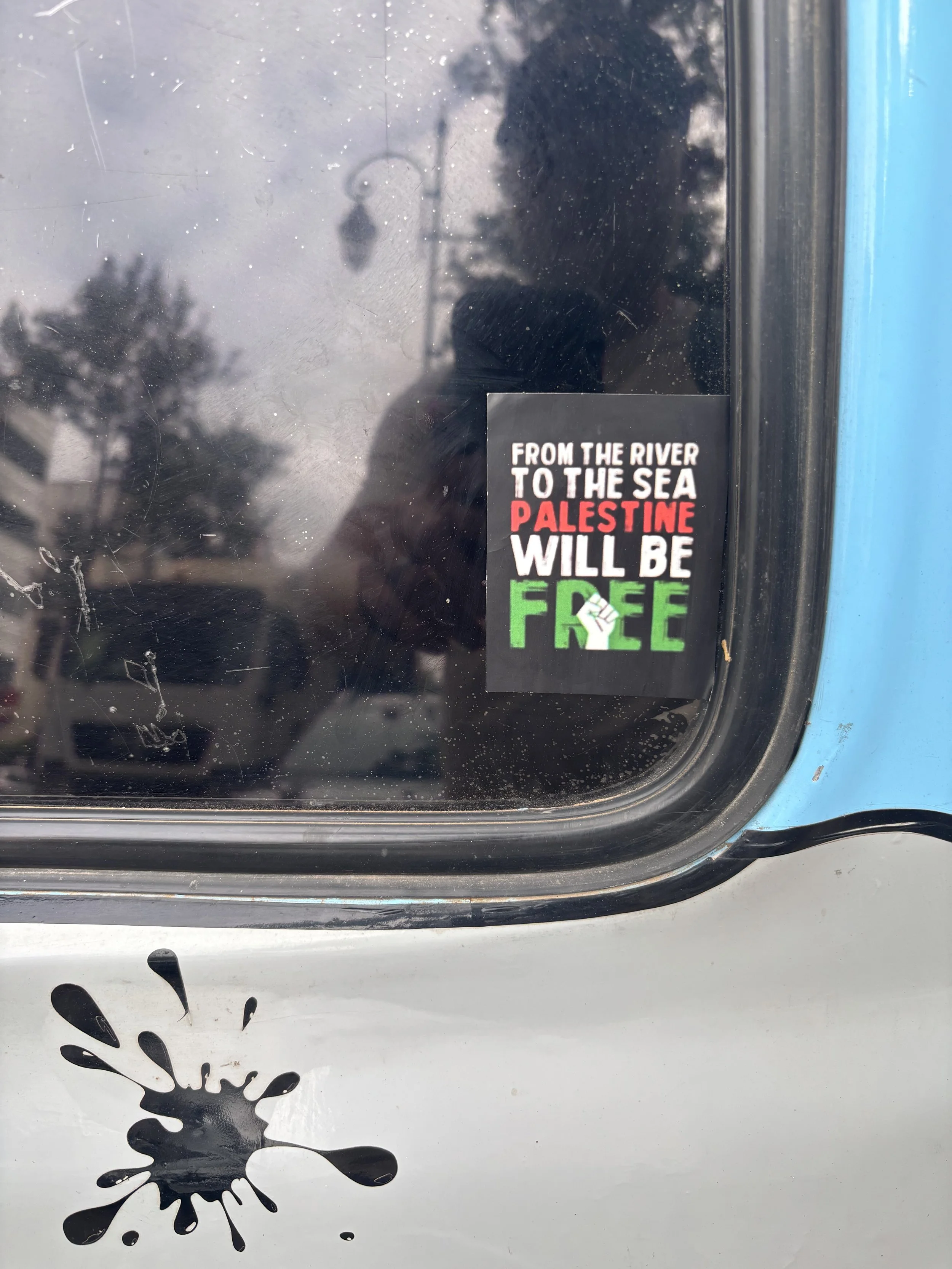
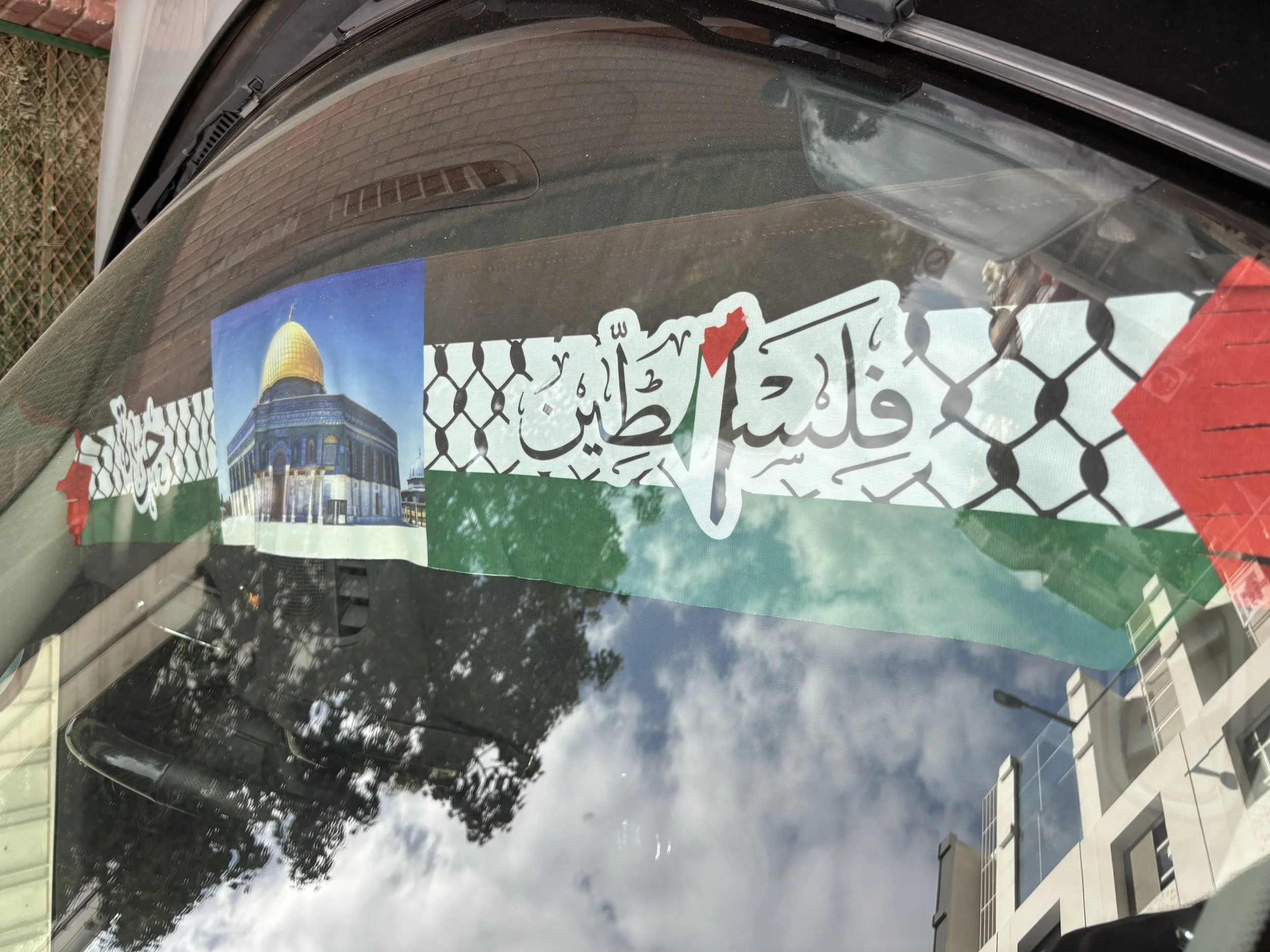
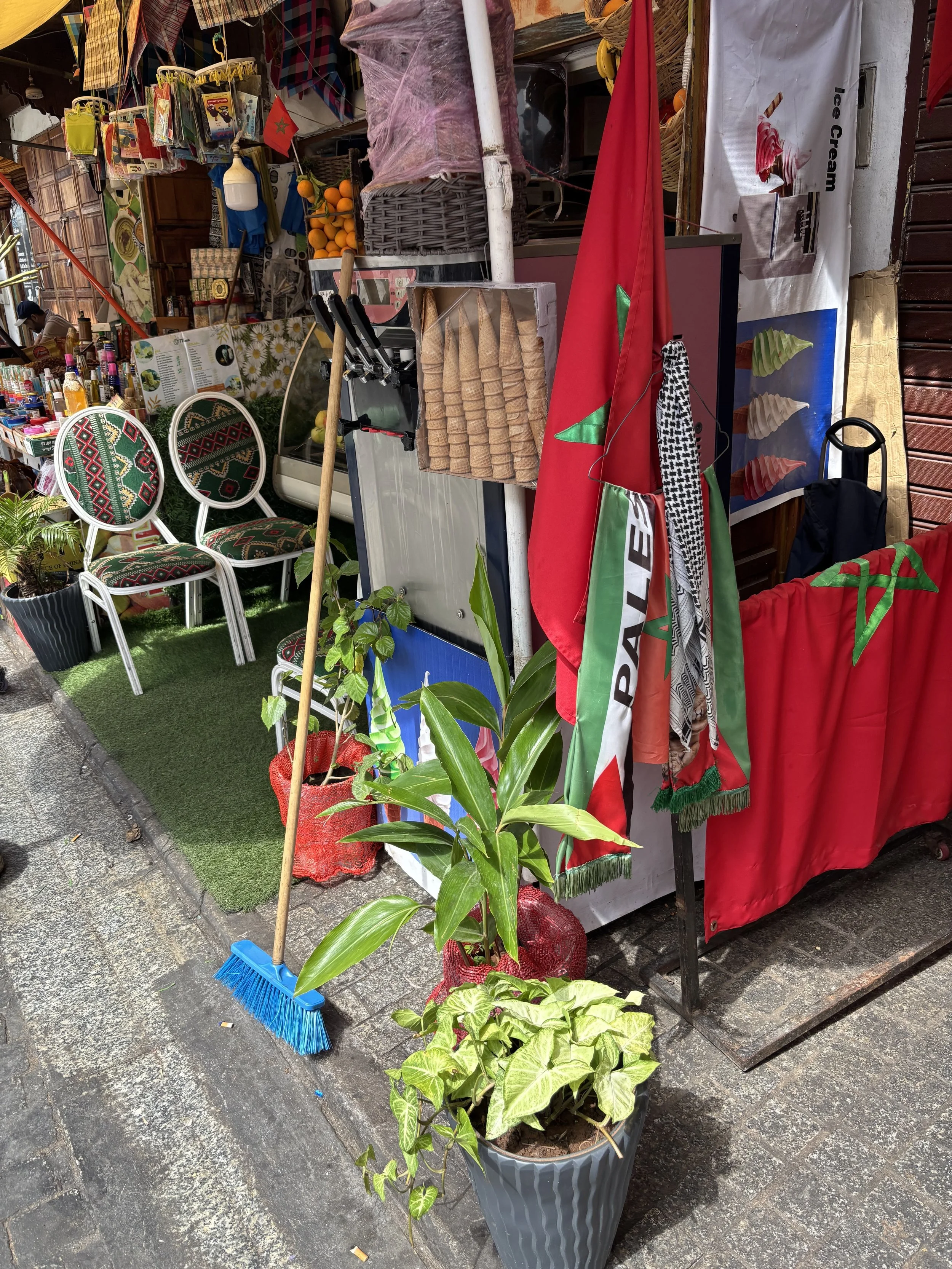
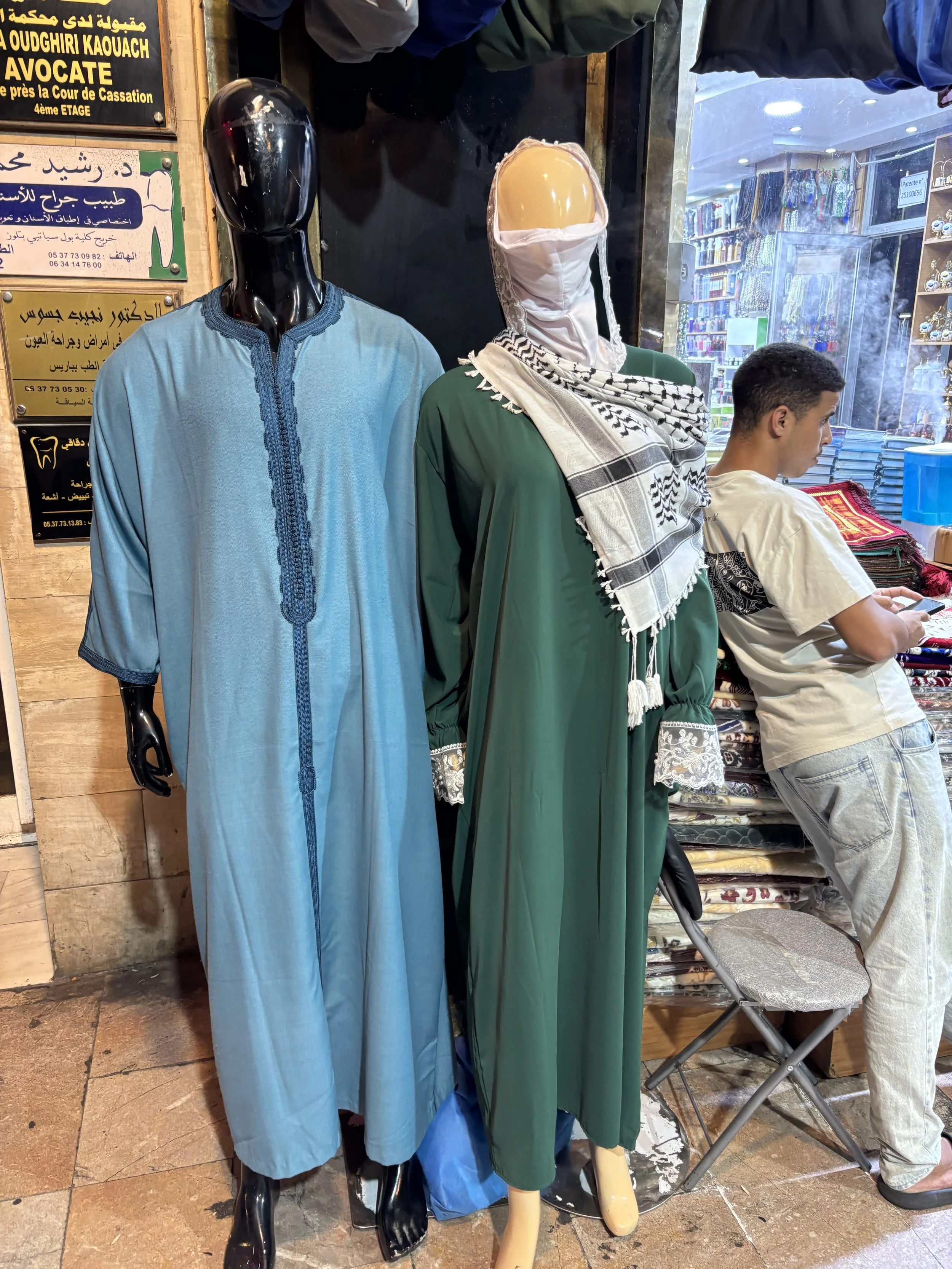
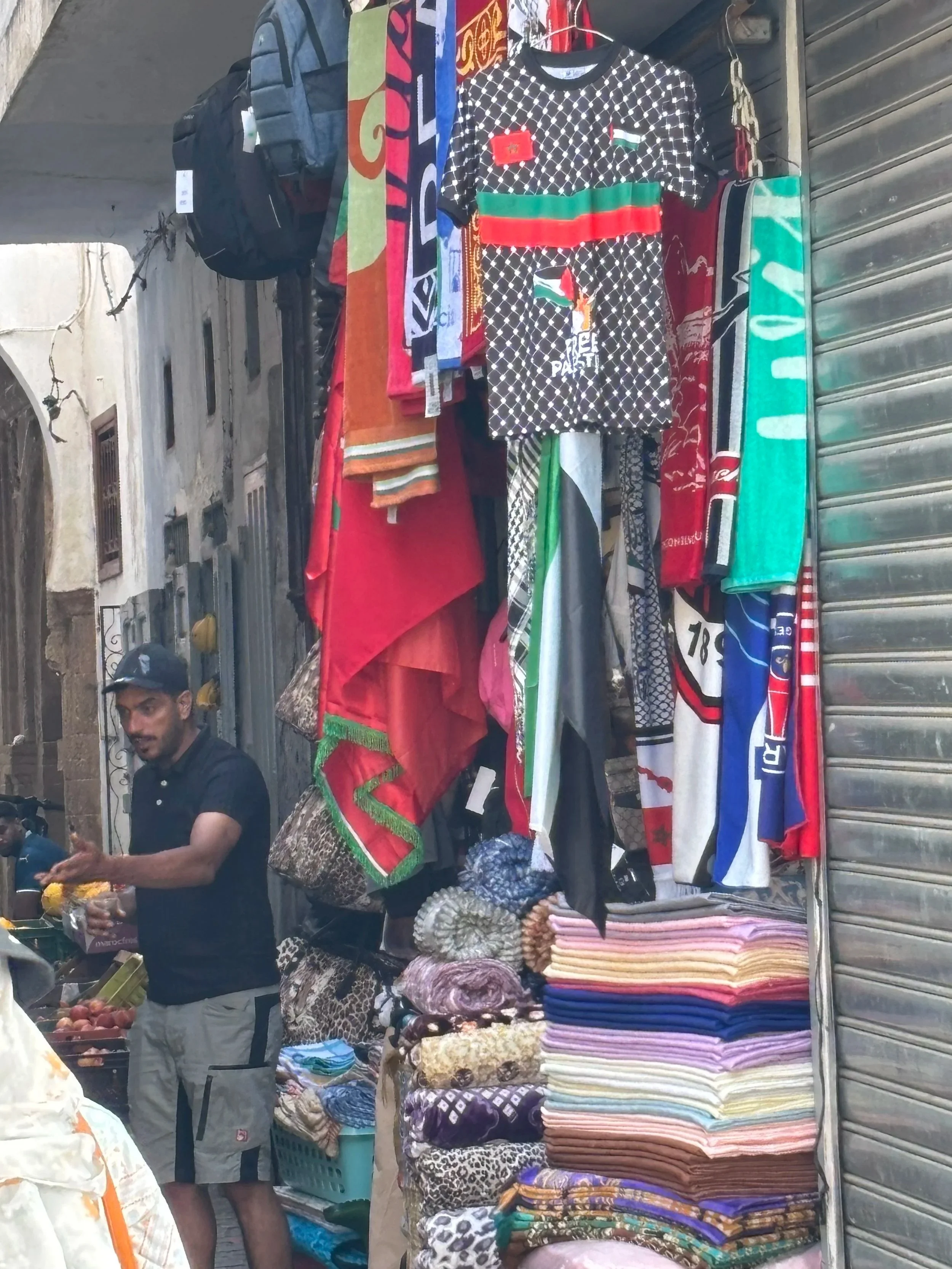
When I arrived in Morocco to study Arabic, I fully expected to learn from a Moroccan teacher and just assumed that all the teachers at the institute at which I’m studying was fully staffed by Moroccans. I was surprised to learn that my teacher is a Palestinian from Gaza. In class every day we discuss the news we are reading and in spite of our best efforts the gravity of the war in Gaza pulls us in that direction. When discussing the current state of the Arab World, the politics, of the Middle East, and even its history the Israeli-Palestinian conflict features prominently. It has felt at times omnipresent.
Earlier on this trip I visited Marrakesh on a mad dash through the desert and up over the High Atlas. On my first evening in a tourist Mecca known for its luxury spas, high-end shopping, and traditional souqs, I walked by a small demonstration outside the famed Koutoubia Mosque in support of Palestinians. The next evening at dinner our waiter was wearing a “Free Palestine” shirt. Even in the souqs known for traditional goods likes carpets, carpentry, and jewelry; there were ample keffiyehs hanging in many shops and the occasional Palestinian flag flying alongside the Moroccan flag.
Since returning to Rabat, just about every day I’m reminded of the conflict. Whether its visiting the local book shop or walking through the souq or just meandering through traffic I see daily reminders of Moroccan support for Palestine. Even though I’m still thousands of miles away, the conflict is inescapable.

